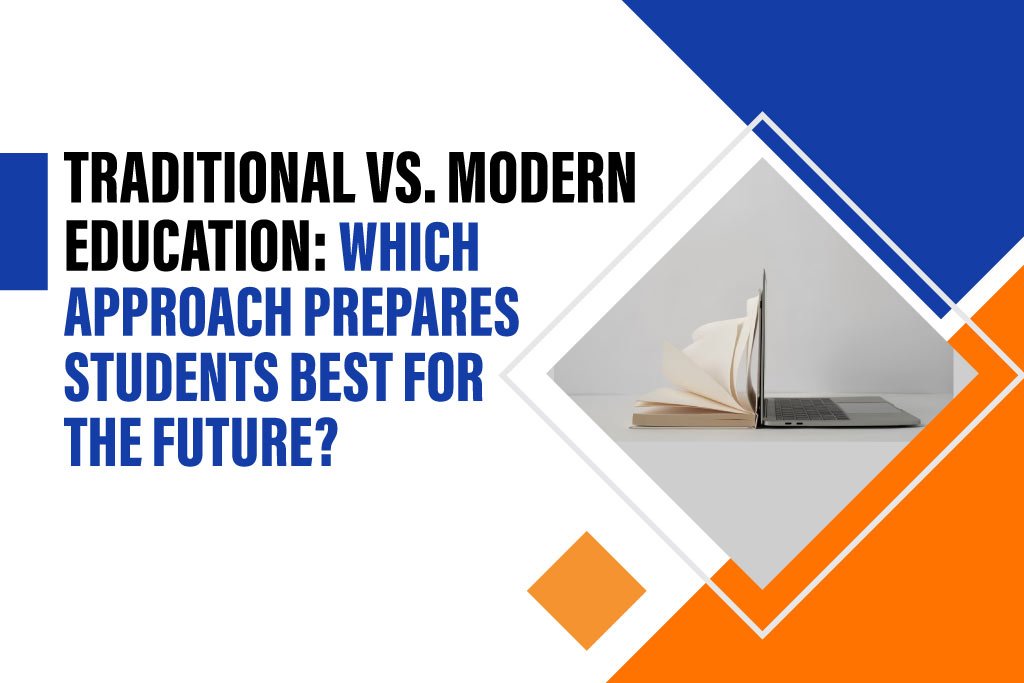
Traditional education places teachers at the center. Teachers are gatekeepers of knowledge, shaping students into disciplined, moral individuals prepared for adulthood and contributing to the workforce. As the world evolves, so do modes of education, bringing us to the pivotal discussion of modern education vs. traditional education.
Modern education places the student at the center of the educational model. Progressive education focuses less on how a teacher prepares students for jobs and more on what students are passionate about and what critical thinking skills they can develop.
This blog explores the key aspects of both modes of education, their differences, and how institutions like Karpagam College of Engineering (KCE), one of the top 10 engineering colleges in Coimbatore for computer science, embrace modern education to create future-ready learners.
Why is Education Important?
Education goes far beyond classrooms and grades. It’s a lifelong journey that shapes your knowledge, character, and skills. It’s about developing the skills that help you face challenges in a constantly changing world.
It’s not just about what we study now, but how we apply it later. That’s why choosing the right approach—traditional and modern education—is important. Makes sense! It’s about preparing you not just for a career but for life itself.
What is Traditional Education?
Traditional education focuses on teacher-centered methods like using textbooks and a structured syllabus. It focuses on discipline, foundational knowledge, and consistent test routines. While it mostly focuses on academic learning, it often lacks creativity, flexibility, and hands-on learning, essential for students today.
What is Modern Education?
Modern education is student-centered, focusing on technology, intellectual reasoning, and skill development. It encourages you for collaboration, problem-solving, and practical application using tools like smartboards and online resources. It adapts to different learning styles, preparing you for a global standard.
As part of the traditional and modern education system in India, modern methods are gaining popularity for their focus on future-ready learning.
Traditional Education vs. Modern Education: 10 Key Differences
| Aspect | Traditional Education | Modern Education |
| Focus | Memorization and theory | Practical application and skills |
| Teaching Style | Teacher-centered | Student-centered |
| Tools Used | Textbooks, blackboards | Digital tools, e-learning platforms |
| Curriculum | Fixed and rigid | Flexible and adaptive |
| Technology Integration | Minimal | High |
| Assessment Methods | Exams and grades | Continuous assessment |
| Learning Style | Passive | Active and collaborative |
| Creativity Encouragement | Limited | Highly encouraged |
| Global Relevance | Limited | High |
| Skill Development | Academic-focused | Holistic, including life skills |
Understanding what is the difference between traditional and modern education helps us notice the strengths and limitations of both systems.
How does Karpagam College of Engineering, Coimbatore, Promote Modern Education?
Karpagam College of Engineering (KCE) in Coimbatore stands at the future of educational innovation. It combines the best of modern education vs traditional education to offer you a well-rounded and future-ready experience.
1. Modern Digital Tools:
KCE uses the latest technology to improve your learning process. From smart classrooms to virtual labs, we implement modern classroom trends to make education interactive and engaging.
2. Syllabus Based on Industry Needs:
KCE syllabus is designed to an international standard, making our students job-ready. We are introducing special courses for our students on technologies like AI, blockchain, and data analytics. This focus on education for the future makes us different from institutions that follow traditional learning.
3. Practical Learning:
At KCE, we promote practical learning through internships, workshops, and live projects. By fusing old vs. new teaching methods, we help students benefit from both foundational knowledge and practical exposure. Our college labs enable students to gain practical experience, a key element in modern education.
4. Research and Innovation:
By making students think beyond textbooks, KCE promotes research and innovation. With our campus research centers, students are encouraged to explore rare ideas and contribute to solving real-world problems. This makes KCE a leader in the traditional education vs. modern education transition.
Why Parents Should Choose Karpagam College of Engineering?
Karpagam College of Engineering is the ideal choice for parents who are looking for an institution that harmonizes traditional values with innovation.
Here’s why KCE stands out:
Future-Ready Curriculum: Our courses are designed to equip your son/daughter with skills for growing industries, making them a leader in the difference between traditional education and modern education pdf discussion.
Expert Faculty: Our professors are industry experts and researchers who bring real-world discussion to the classroom.
Best Facilities: From modern labs to digital libraries, KCE infrastructure induces advanced learning.
Proven Track Record: With a legacy of producing successful professionals, KCE is a trusted name in engineering education.
By choosing KCE, parents invest in a future where their children shine academically and professionally.
Conclusion:
The debate between traditional education vs modern education is increasingly about choosing one over the other and more about finding a balance that caters to necessary needs. Karpagam College of Engineering gives the perfect balance in this by providing students with the best of both worlds.
KCE, one of Coimbatore’s best engineering colleges, is the ideal institution for parents and students seeking an innovative yet holistic educational experience. After all, education is not just about learning—it’s about shaping the future.
